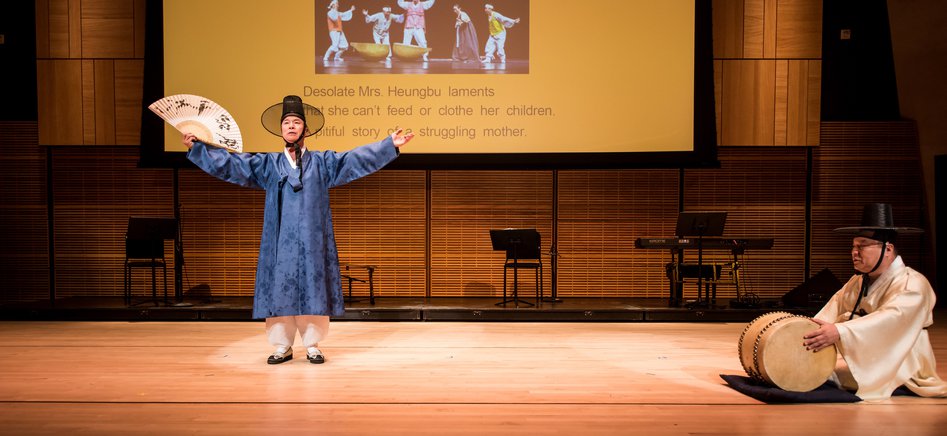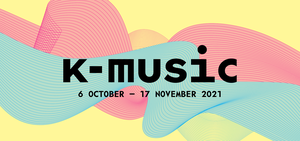Celebrate Pansori

One of the world’s great musical art forms
The Korea Pansori Preservation Association (KPPA) preserves the rich history of traditional Korean opera, studying the art and sharing its joy and charm throughout the modern world. The company boasts twelve top and highly respected vocalists and live musicians to tell these ancient stories that still resonate today.
- ‘In pansori, the intimacy, the translation, the audience and the ambience are just as important as the music. When all that comes together, pansori really is one of the world’s great musical art forms.’ (Simon Broughton/Songlines)

There are five surviving stories within Korea’s pansori tradition, and this concert will present selected extracts from; Jeokbyukga, Simcheongga, Heungboga, Chunhyangga and Sugungga – each performed in Korean with English surtitles and reference images.
- Jeokbyukga – ‘’Song of the Red Cliff’ sings of the fiercest battle, Jeokbyeok, from the Chinese novel Samgukji, The Records of the Three Kingdoms.
- Simcheongga – a devoted daughter, Sim-cheong, sacrifices herself for her blind father by falling in to the sea and is reincarnated, with the help of the Dragon King, to open her father’s eyes. ‘Begging Food for Her Father’ is one of the most sorrowful songs in this piece.
- Heungboga - this humorous pansori tells the tale of the poor but generous Heungbo and his wealthy but greedy brother Nol-bo. ‘Breaking a Calabash’ is the climax that Heungho finally becomes rich by receiving fortune from the calabash which a swallow gave it to him as a reward.
- Chunhyangga – a love story between Seong Chun-hyang, the daughter of the retired geisha Weolmae, and Lee Mong-ryong, the son of the newly appointed Minister in the southern area, Namwon – a love that overcomes the barriers of class. ‘Sarangga’ (Love Song) is the most famous song of the entire piece.
- Sugungga – a loyal tortoise goes out to hunt rabbit liver to save the Dragon King under the sea. Whilst the tortoise successfully attracts the rabbit and brings it to the kingdom under the sea, the rabbit then escapes the Dragon King by disguising itself as another animal with satire and humour.
*This performance will be subtitled in English




